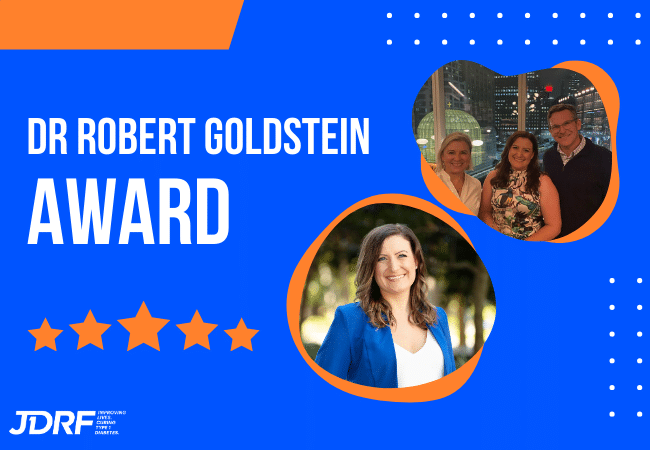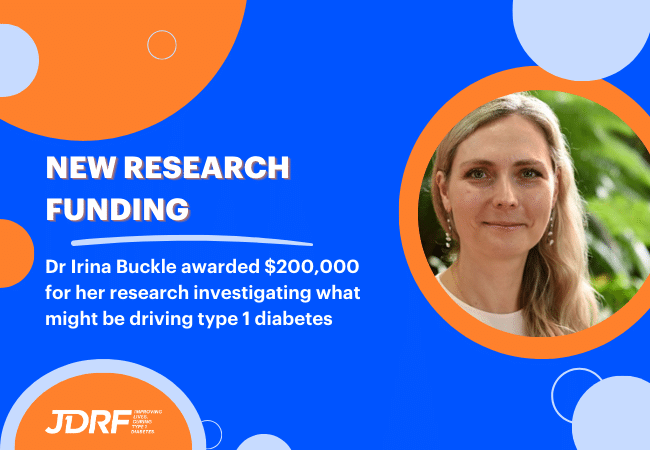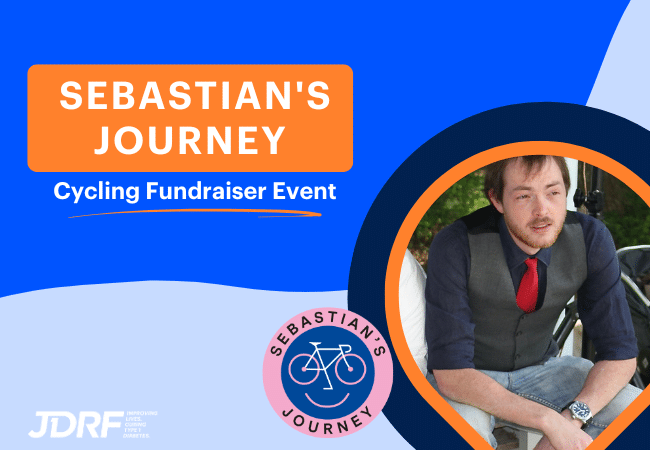Accessing mental health services with type 1 diabetes
This resource was created in consultation with Dr Rosalyn Taylor, clinical psychologist who specialises in diabetes at the Sunshine Coast Hospital and Health Service.
Living with type 1 diabetes can often mean we emphasise our physical health at the expense of many other aspects of our wellbeing – including our mental health. The truth is, we shouldn’t overlook the emotional, social and psychological ties type 1 diabetes and mental health have to each other.
How does type 1 diabetes affect mental health?
Diabetes can make life feel frustrating and unforgiving. It’s a sensitive creature which can be affected by stress, exercise, illness, excitement, travel, work and routine changes, hormones, our age, food and drink, insulin type/dose/site, or even for no reason at all.
There are some sobering type 1 diabetes and mental health statistics out there: for example, people living with T1D make an extra 180 decisions every day compared to the average person – and these decisions can be extra stressful, as they’re often critical to their health and wellbeing. Living with T1D also puts you at greater risk of developing depression, anxiety and even eating disorders.
It’s tough to maintain blood glucose levels and hold onto motivation, especially when T1D is something you must manage 24/7. Diabetes burnout is real.
So, when the going gets tough it’s important to know support is available for mental health issues, and to know where and how to access that support.

Where do I start?
Accessing mental health support and services in Australia can feel complex, but you shouldn’t be discouraged! If you’re in need of support, you should find someone to be your first point of contact and who can help navigate mental health services with you.
In any case, this person should be someone you trust and is available to see you regularly – for example your general practitioner (GP), diabetes educator or a community mental health worker.

Is accessing mental health services expensive?
Not necessarily.
Your GP can refer you to a psychologist or mental health social worker for counselling. They can make this more affordable for you by filling out a Mental Health Care Plan under the Better Access Scheme. By accessing this initiative, you can claim part of the cost of the counselling sessions through Medicare and reduce your out of pocket costs.
You and your GP will develop the Mental Health Care Plan together. It will contain a summary of how you’ve been feeling as well as a treatment plan and options for support services which will help you achieve your goals.
If you are privately insured you may also be covered for part of the cost, however you should check this with your fund.
Additionally, many public hospital diabetes services have specialist diabetes psychologists who are available at no cost. If you are already engaged with a diabetes team in a hospital setting, ask at your next appointment if there is a Type 1 diabetes and mental health specialist available for them to refer you to. To access this particular service you are not required to complete a Mental Health Care Plan with your GP.
Who can help?
If you access a Mental Health Care Plan, your GP will be the starting point for seeking professional help. They will arrange to refer you to an eligible psychologist, social worker or occupational therapist. Alternatively, they might decide the best course of action is to refer you to other mental health practitioners. Ask them to consider health practitioners with expertise in type 1 diabetes and mental health, or specialists who work with people with chronic diseases.
Some examples of other mental health practitioners include:
- Psychiatrists
- Mental health nurses
- Aboriginal and Torres Strait Islander health workers
- Counsellors
- Complementary health practitioners
- Hospitals
- Crisis Assessment or Acute Treatment teams
Read more about the difference between these health professionals and the kind of treatment they provide on the Beyond Blue website.
Where can I access mental health care?
There are many ways and places where you can access mental health services, for example: your home, at a medical practice, in a hospital or by attending a specialist facility.
Additionally, if you require emergency help with a mental health condition you can contact ambulance services by dialling 000 (triple zero) for urgent assistance.
Check out some of the various places you can access mental health services below.
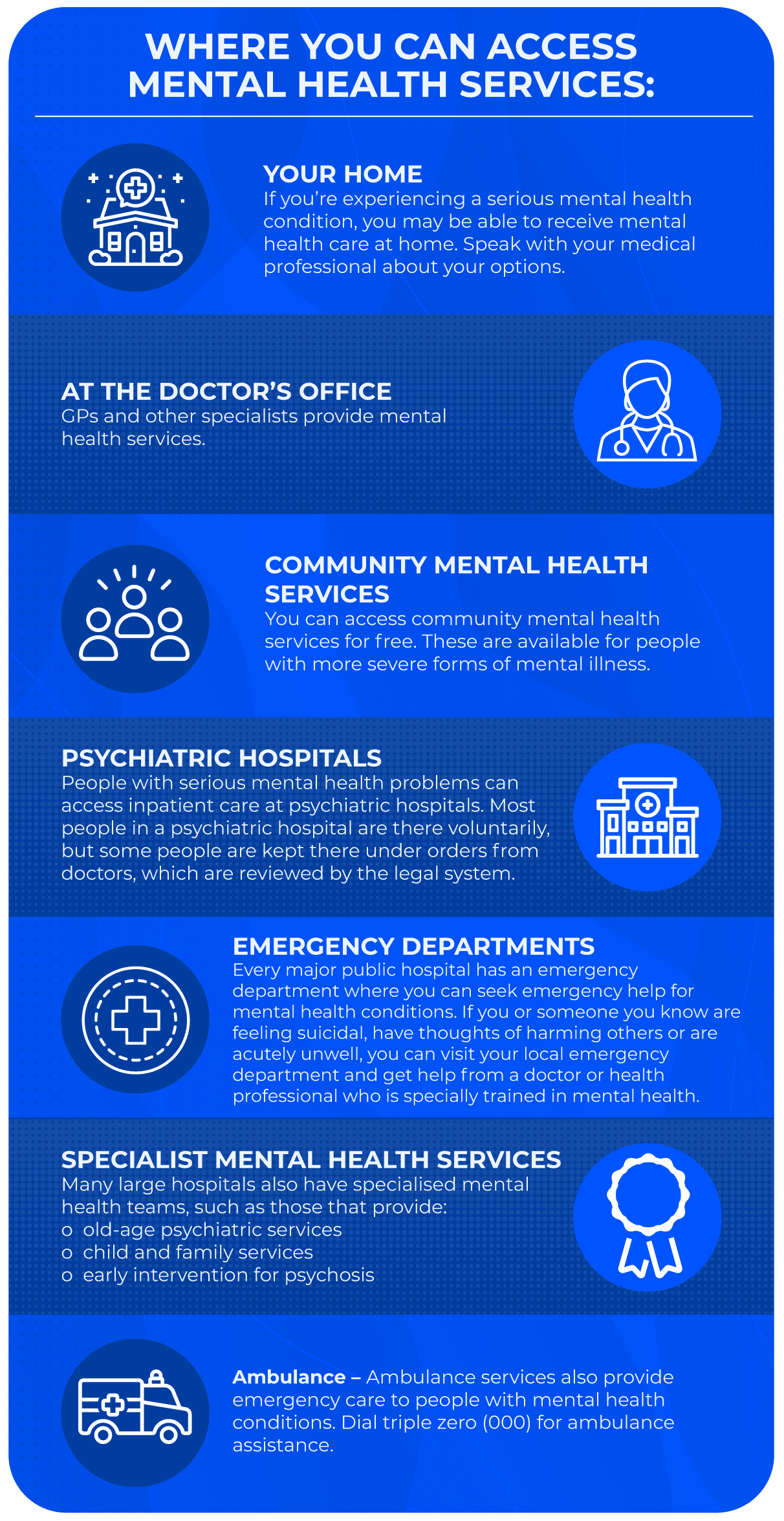
Personal strategies to apply when dealing with anxiety or depression
As well as accessing support with the mental health practitioners listed above, it can help to try a few personal strategies when coping with anxiety or depression. This can vary from person to person, but you could try the following:
- Trying to get some regular exercise
- Joining others for social activities
- Maintaining a healthy weight
- Researching statistics about type 1 diabetes and mental health (this can help remind you that you’re not alone)
- Eating well, including a range of healthy foods
- Limiting your alcohol intake
- Talking to your family and friends honestly about how you’re feeling.
Other sources of support
You may be looking for other pillars of support in the T1D community while you address your mental health needs. Here’s some resources you can access from JDRF Australia and other organisations:
- Connect with a volunteer network that understands with our Peer Support Program.
- Join one of JDRF Australia’s T1D Connect private Facebook groups – whether you’re a parent or carer of someone diagnosed with T1D, a family member or friend or someone living with T1D, or live with T1D yourself and are aged 14 to 24 years or 25 years +.
- Access a range of fact sheets and resources on diabetes and mental health on the National Diabetes Services Scheme (NDSS) website. You could bring any of these along to your first consultation to help start your discussion.
To talk to someone urgently contact:
- Beyond Blue 1300 22 4636
- Lifeline 13 11 14
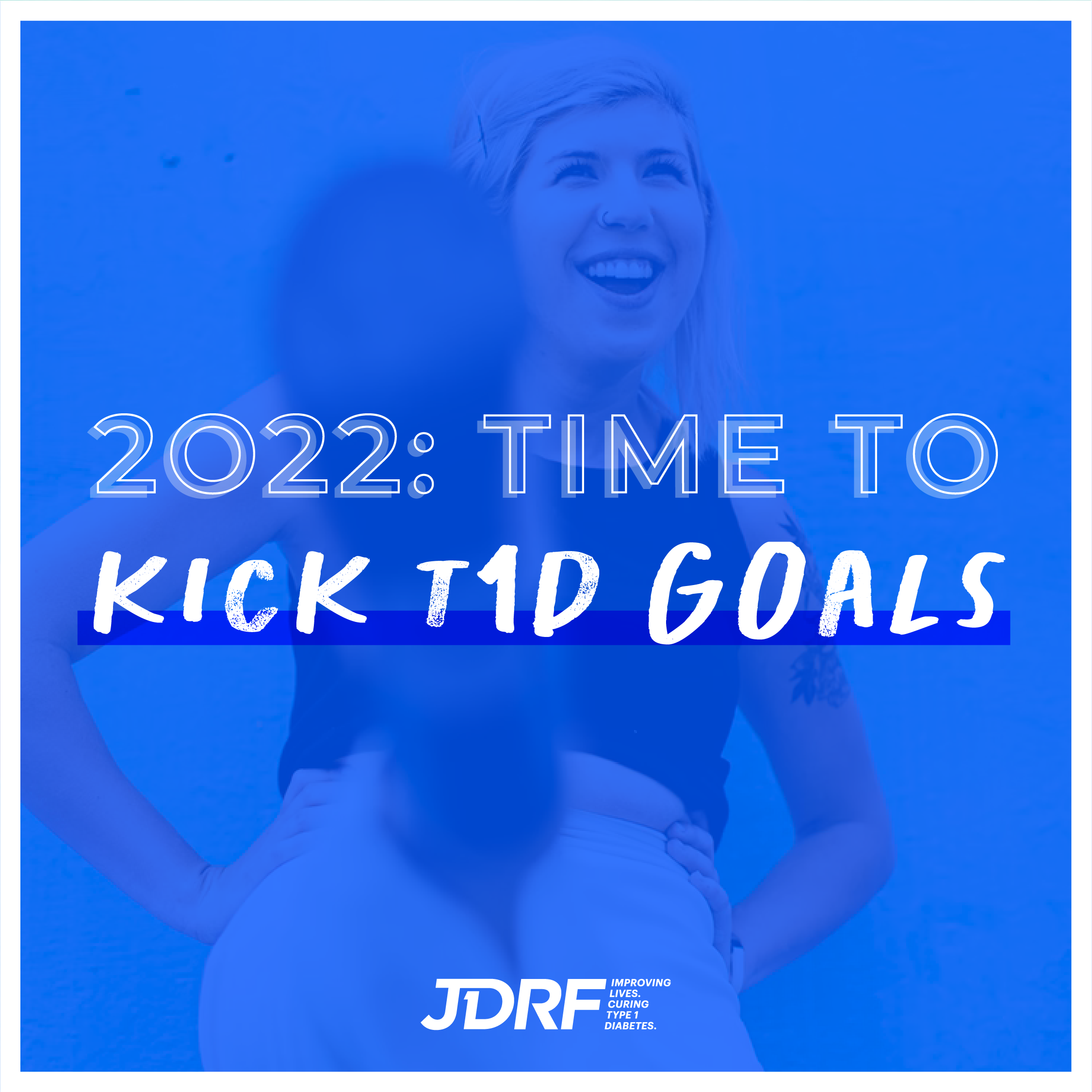
Want more mental health tips like this?
Fill out this form to have Straight to the Point: A guide for adults living with T1D sent directly to your inbox.

